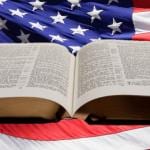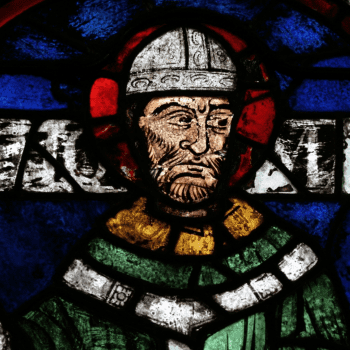U.S. Attorney General William Barr has directed every U.S. Attorney “to be on the lookout for state and local directives that could be violating the constitutional rights and civil liberties of individual citizens.”
The directive came after the Attorney General issued a Statement of Interest in support of a church in Mississippi whose congregants were fined $500 per person by city police for gathering in their cars in a parking lot worship service during their state’s shelter-in-place order. Congregants listened to the sermon on their car radios and sat inside their cars with their windows rolled up. The city responded by dropping the fines.
“Many policies that would be unthinkable in regular times have become commonplace in recent weeks, and we do not want to unduly interfere with the important efforts of state and local officials to protect the public,” Barr said in the statement. “But the Constitution is not suspended in times of crisis. We must therefore be vigilant to ensure its protections are preserved, at the same time that the public is protected.”
The national directive came one week after Texas Attorney General Ken Paxton issued guidance for houses of worship holding in-person meetings. The guidance was issued after the governor modified his order stating that churches were essential businesses and after Harris County Judge Lina Hidalgo directed law enforcement to fine churches that were holding services.
A Houston-based CEO of a Texas medical company, Dr. Steven Hotze, and four pastors, along with U.S. Rep. Tom DeLay, sued Hidalgo. One week later, Gov. Greg Abbott released a 63-page guidance to partially reopen the state, reiterating that churches can meet in person and that state law supersedes all local ordinances that contradict it.
The Attorney General’s letter also came two days after assuring 500 faith leaders on a phone call that the Trump administration “was on guard against overzealous state governments intent on ‘singling out’ religious groups with punitive coronavirus lockdown measures.”
“Standing up for liberty is one of our highest priorities, my highest priorities,” Barr said, according to a transcript of his remarks provided to National Review, which was confirmed by the Department of Justice.
To date, North Carolina and Indiana have followed Texas in stating that houses of worship are considered “essential” and can open for in-person services, with exceptions and.
“Even in times of emergency, when reasonable and temporary restrictions are placed on rights, the First Amendment and federal statutory law prohibit discrimination against religious institutions and religious believers,” Barr said in the letter to attorneys general. “The legal restrictions on state and local authority are not limited to discrimination against religious institutions and religious believers. For example, the Constitution also forbids, in certain circumstances, discrimination against disfavored speech and undue interference with the national economy.”
“If a state or local ordinance crosses the line from an appropriate exercise of authority to stop the spread of COVID19 into an overbearing infringement of constitutional and statutory protections, the Department of Justice may have an obligation to address that overreach in federal court,” Barr added.
The Assistant Attorney General for Civil Rights, Eric Dreiband, and the U.S. Attorney for the Eastern District of Michigan, Matthew Schneider, have been tasked with overseeing and coordinating the Attorney General’s directive. If states do not comply, Barr said “corrective action” will be taken.
Church leaders and small businesses have sued the governors of California, Minnesota and Texas, arguing their states’ executive orders violate their respective state constitutions and the U.S. Constitution. A federal judge in Kentucky granted a temporary restraining order on Friday on the governor’s executive order prohibiting in-person services held by houses of worship. A similar restraining order petition was filed more than a week ago in Washington over similar executive order.















